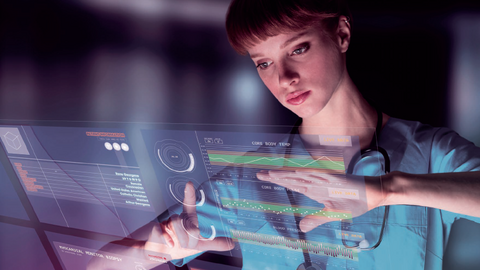
Digital Humanities II
Artificial intelligence & artistic and literary creations
Thursday 24 & Friday 25 November 2022
9am > 6pm
Organized by the LARSH DesCripto Department
The Digital Humanities II - Artificial Intelligence and Artistic and Literary Creations conference organized on November 24 and 25, 2022 by the department DeScripto - Praxis of Writings and Imaginariesof the Research Laboratory Societies and Humanitieswill be devoted to intelligent devices, the use of artificial intelligence by artists and in literary and artistic works through anthropomorphic machines.
The focus will be on creative practices, the process of creating works instituted from artificial intelligence, ethical and societal issues, intellectual property and the concept of creativity.
Howcan algorithms and machine learning take over from intuition and the creative process ? What are the perspectives for gestures in art, style, but also forms of sensibility and sensoriality in front of a work of art equipped with artificial intelligence? How to grasp the cultural impact of AI and reflect on the sensitive universe of artificial languages it engages.
How the computer program, carrier of a formal logic, opened the way to simulations and simulacra of reality but also to the realization of works deployed in the metaverse and stemming from the blockchain, certificate of authenticity and the computer code of NFTs, the " non-fungible token " ( non-fungible tokens) that have taken hold in the art market. Such a mutation of art also invites questions about the economic and political stakes of the crypto-currencies/crypto-arts used to determine the value of art in metavers, the lucrative and speculative dimension, of counterfeit works.
The traceability and authenticity of the works can be of interest due to their " infinite reproducibility " (Walter Benjamin). Their greater and often instantaneous diffusion makes the notion of intellectual and moral property more obsolete, unless one has the legal means to trace authenticity and defend one's rights. How profusion has replaced diffusion ?
Such an approach can also be considered by summoning art movements that have set milestones for a quasi-machinic exploration.
The conference is envisaged from a transdisciplinary perspective, in order to cross approaches, from the humanities with those of computer science. It will welcome researchers from these disciplines but also artists and creators.

